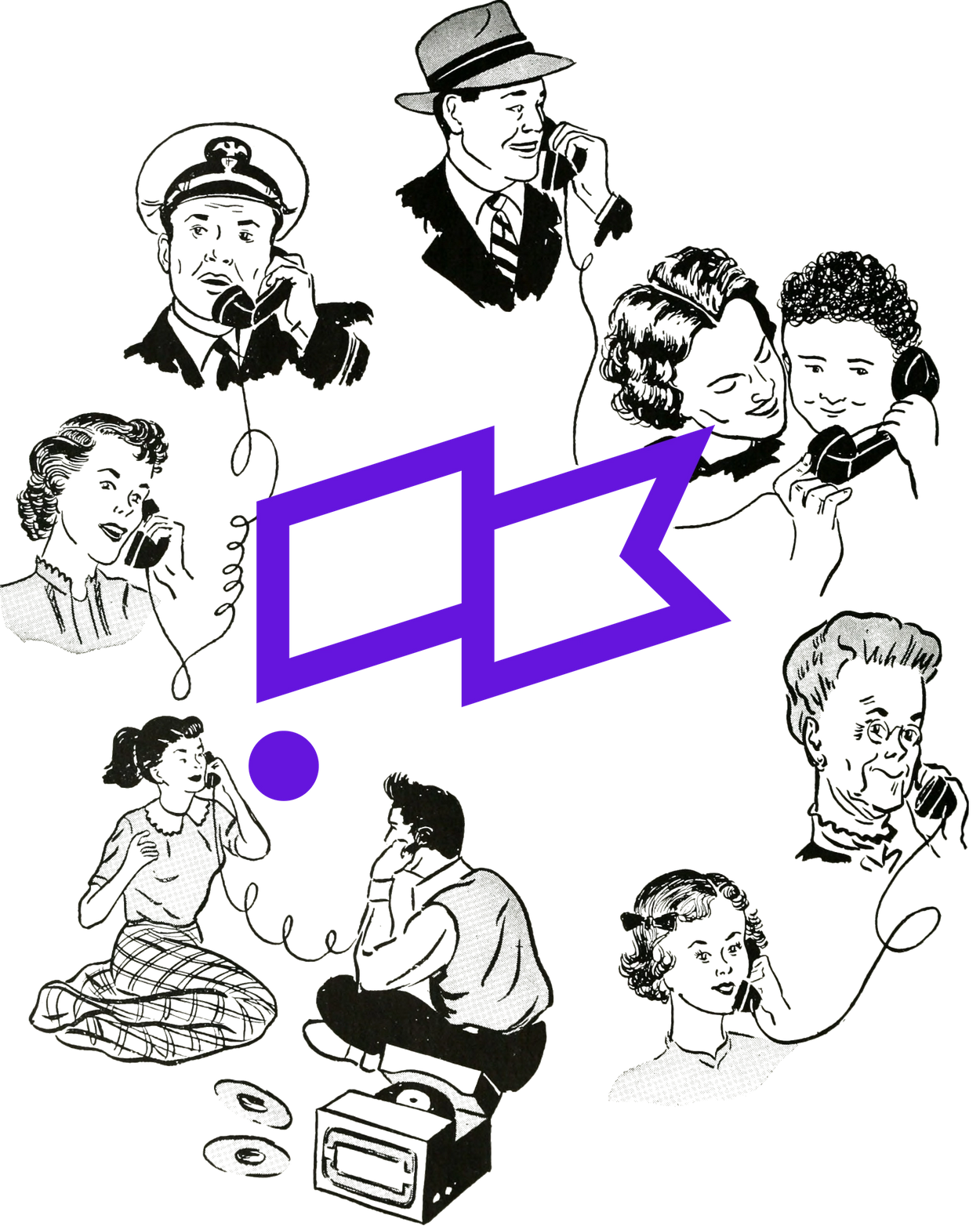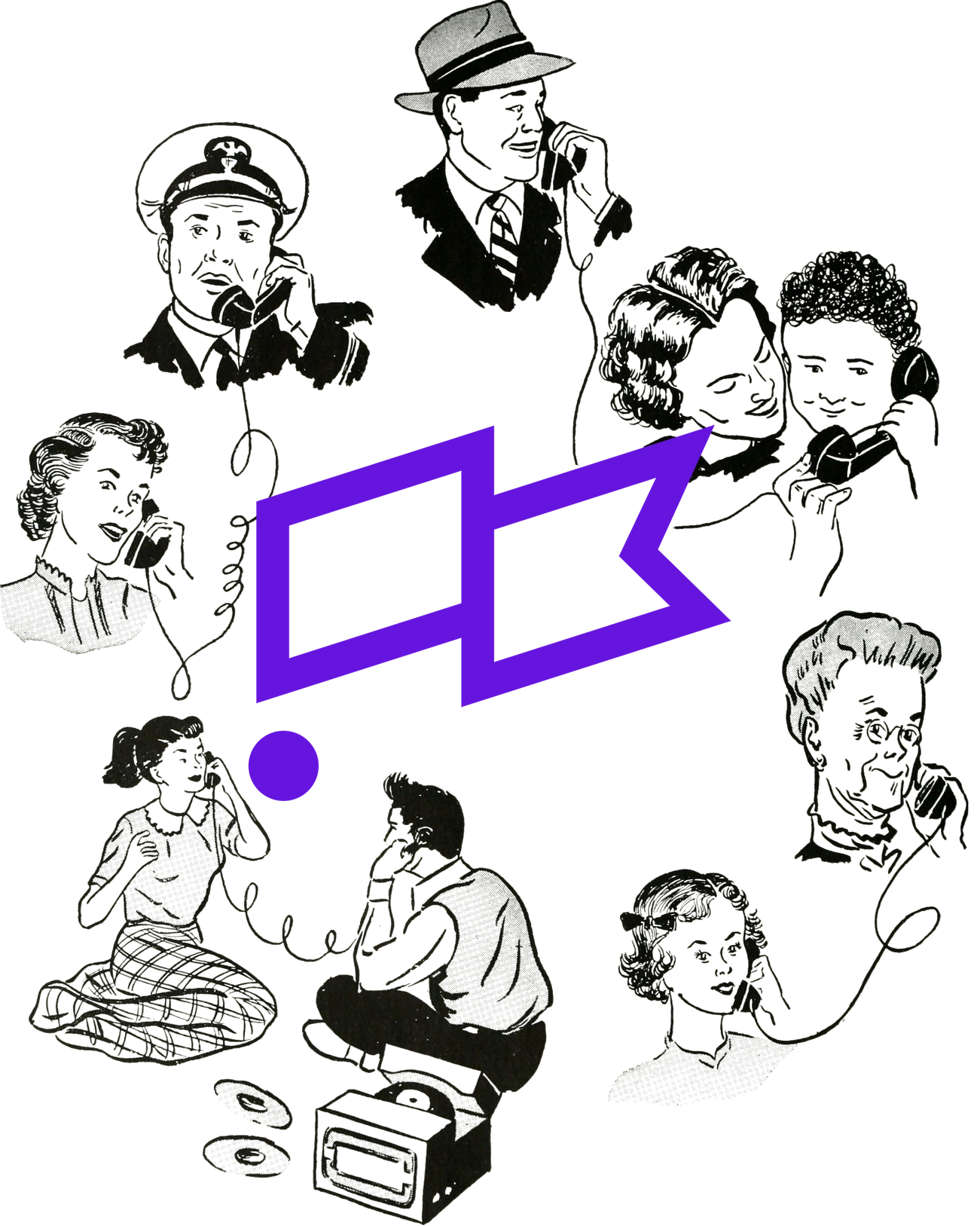Can Clubhouse Save the Jews?
The invite-only app promises to save something central to Jewish life: conversation




All of a sudden, I’m not so afraid for the children.
On a recent Sunday, despite my tendency to reserve weekends for fresh air and errands, I remained indoors, tethered to my phone. I was transfixed—absorbed in an hourslong Clubhouse chat that, at points, surged to the highest of values and, at others, merrily inhabited more earthly topics.
Clubhouse, the latest iPhone-only, voice-chatting social media app, is an invite-only platform that allows moderators, speakers, and listeners to engage in a real-time, democratized sort of podcasting. Basically, it’s a paradise for schoomzers.
With an astounding cross section of Jews represented (think Bobover Hasidim, Modox Bnei Akivaniks, Chabadnikim, Conservative Jews, secular seekers, and just about any group you can imagine), during Sunday’s conversation, we explored gender dynamics in Jewish education, the intersection of religious identity and shame, and the responsibility of religious sexual ethics to contend with trauma, all the while and intermittently sharing Jewish jokes and nightmare dating stories. Everyone’s thoughts were welcome and respected—even if contested.
Despite the late hour at which I “left quietly” (Clubhouse-speak for one’s exiting a particular conversation), I felt deeply awake—alive in my mind and imagination and, somehow, also comforted and held.
After this year of staggering immobility and isolation, and after the dissolution of social life as we once knew it, I felt a sense of possibility. The discovery of eager congregation and endless curiosity, but also, and far more importantly, a place that venerates the voice rather than the image.
For nearly two decades, platforms like Facebook, Snapchat, and Instagram reigned supreme, inundating users’ psyches with flurries of doctored photos, while a spirit of parade and ostentation took firm root until we’d planted ourselves irretrievably in the era of comparison culture.
And the evidence is damning—numerous studies link increased social media consumption with rising incidences of anxiety and depression in young people, and, even among adults, passive, habitual scrolling has been tied to heightened feelings of loneliness and envy.
Let’s not forget, as well, that these platforms have given birth to an unprecedented degree of internet trolling and bullying that, in some cases, has led to results as devastating as teen suicide and the invention of new forms of digital self-harm.
Even image-light platforms, such as Twitter, can be ruthless. With a 280-character limit, the nuances and subtleties of more substantive dialogue fall by the wayside, while clipped and often charged sentiments take their place, living forever online, for all the world—victim or target included, of course—to revisit and revisit and revisit …
Nascent though it is and infected though it may still become, Clubhouse makes me hopeful. Its rejection of social media’s regular image deluge calls to mind the insights of famed French Jewish philosopher Emmanuel Levinas, who claimed that the face-to-face interaction is what cultivates our ethical responsibility toward the other. We gaze into another person’s eyes and, in that moment, our recognition of the other provides a recognition of ourselves in relation to said other, which, in turn, makes one responsible to and for this counterpart. Levinas claims that each person’s distinct combination of facial features reveals “the epiphany of a holy language”—holy because of its uniqueness and holy because of the responsibility it demands of his fellow. That the face is, itself, the very origin of ethics.
In other words, the face-to-face interaction is an essential part of cultivating empathy. We build graciousness toward one another because of our ability to recognize the humanity in someone else’s face. Our hearts need to register emotion in the depths and dynamism of human expression—emotion that images and black-and-white type can often mask.
Without the decency of the face-to-face, we cannot safeguard and nurture the empathy so necessary for our own best chances at psychological health and societal betterment. Without it, young children can’t accumulate necessary feelings of guilt and shame when their hurtful actions distort the laughing, happy features of their conversation partners. Without it, we lose the missteps that turn us kind.
Enter Clubhouse.
Sure, on Clubhouse, we cannot see and read each other’s facial expressions, and we do not cultivate the exact sense of responsibility described by Levinas. But we can hear each other—we can speak and listen without a character limit that forces the sacrifice of softness for brevity’s sake. We can hear burgeoning and underdeveloped ideas, intervening to support, augment or better inform them as they solidify. We can detect sadness or struggle in pauses and choked voices. We can tell stories and venture opinions, slowly developing intimacy with strangers such that we build responsibility toward them and their ideas, even if divergent from our own.
I could have verbally mowed down the blatantly regressive orientation of one of my conversation partners as we discussed women’s priorities in heteronormative Jewish dating. But he sounded so earnest and so very eager for expansion. So, instead, we just told our stories—the stories of our arrival to this shared space.
More than any I’ve utilized, this social media platform allows for substantive engagement with minds and hearts. I’m as guilty as the next person for taking part in image-based self-promotion on Instagram and Facebook, sharing snapshots of my happiness and good times (whether or not the pictures honestly reflected the accompanying emotions and moments). But not a single one of those posts has made me feel as seen as Clubhouse. I have always led with my heart and mind, and, until now, I never realized how hungry they were for an outlet that didn’t obscure them with my face and depend upon “likes” and “shares” for affirmation and community.
Now, it’s true, my excitement about Clubhouse is somewhat tempered by the number of conversations dedicated to the reduction of anti-Semitic and anti-Israel activity occurring on the platform. Just a few days ago, a spirited conversation about Jewish life and Zionist ideals was jarringly interrupted by a user who joined the digital dais only to repeatedly shout “Free Palestine” before swiftly exiting back into the swarm. Still, disheartening incidents feel aberrant, and I remain hopeful that maybe—if it isn’t soon overrun by bots, as predicted by one of my conversation partners this past evening—Clubhouse can introduce a new era in the age of social media.
Maybe this latest emerging generation of children and young adults will come to age at a time when they can observe the intellectual reinvigoration of their older siblings and parents. Maybe they’ll be able to watch as we form radically pluralistic community based in respect, storytelling, and laughter. Maybe they’ll hear the empathy, softness, and genuine curiosity in our voices, and they won’t dare imagine building our world’s next chapter without them.
Malka Fleischmann is a writer and educator living in New York City.